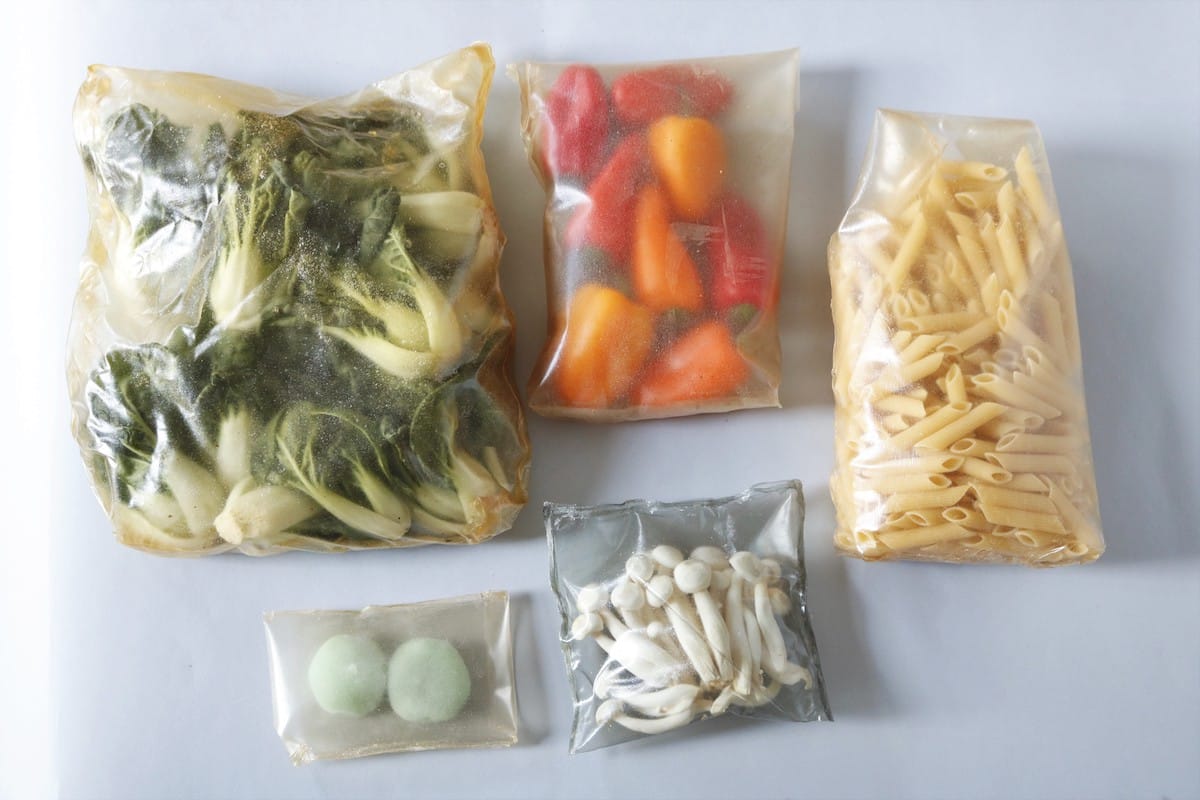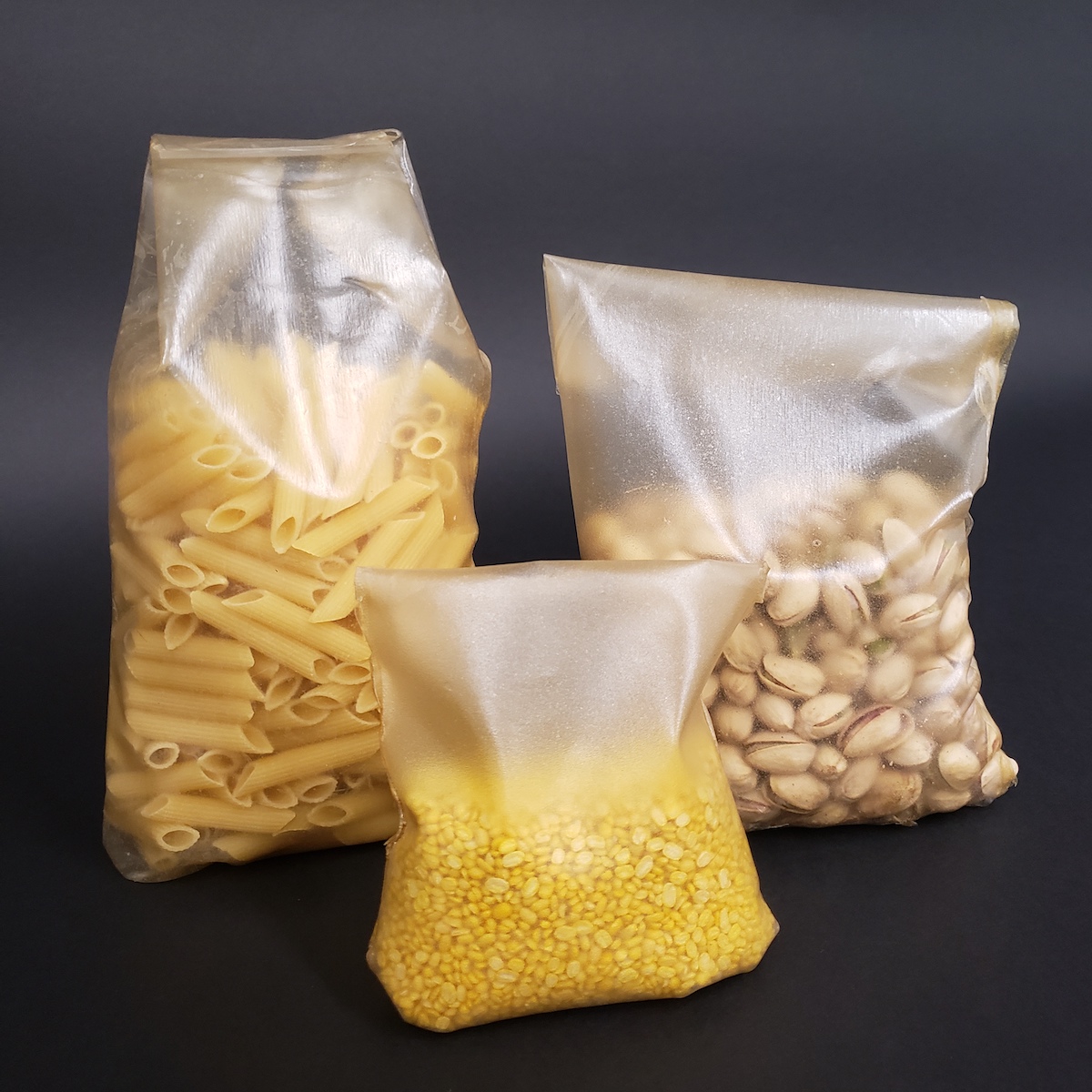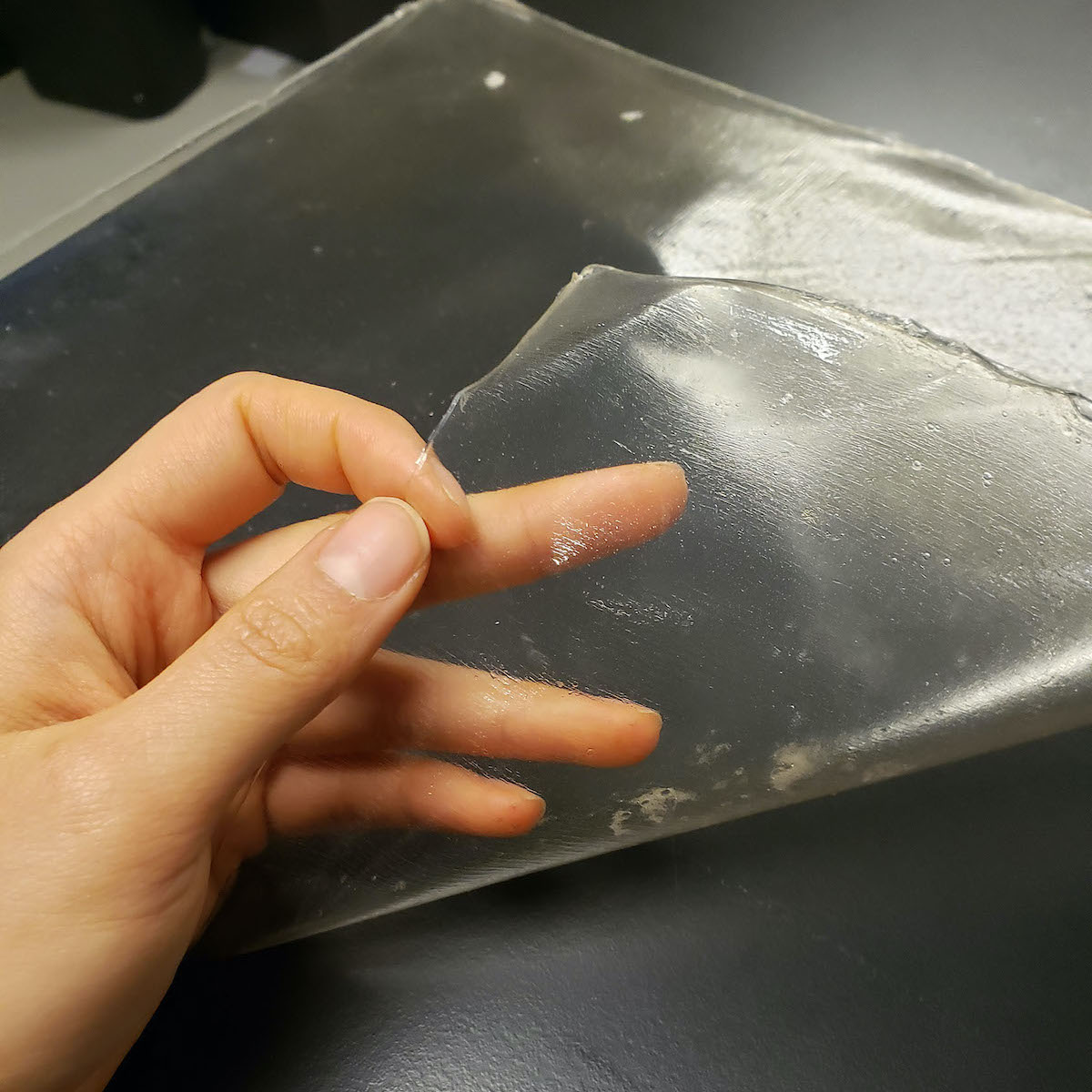Can Fungus Fix Our Plastic Problem?

VISION: Replace single-use plastic packaging with a sustainable, biodegradable alternative made from mushrooms and silkworm cocoons.
Team: Sara Selmić, Kelly Xi
School: School of the Art Institute of Chicago (SAIC), 2021
Plastics that make their way into landfills may release toxic substances into the air and groundwater, which is harmful to both planetary and human health. Today’s starch-based alternatives to petrochemical-based plastics, including corn-based formulas, are not ideal either. Many will only biodegrade under industrially-controlled conditions and often lack the flexibility and strength needed for packaging.
Students from the School of the Art Institute of Chicago developed a recipe for a biodegradable, sustainable material that could replace harmful single-use plastic packaging. The two essential ingredients in PermaPak, as the students call it, are mycelial chitosan, which can be sourced from the waste streams of citric acid and mushroom production, and sericin, a protein found in silkworm cocoons that is treated as wastewater in silk production. To purify their material, they dissolved nonedible mushroom parts in acid and then heated and froze the slurry to extract pure chitosan.
PermaPak is strong and flexible enough to be laser cut into patterns and sewn together while also retaining moisture, resisting microbes, and preventing oxidation—all crucial properties for food packaging material. When no longer needed, PermaPak can decompose in a household compost bucket or worm bin.
“With PermaPak, we see a synthesis of marine forestation, waste-stream utility, accessible home compost degradation, and local food sovereignty for our near future,” said Selmić and Xi.



